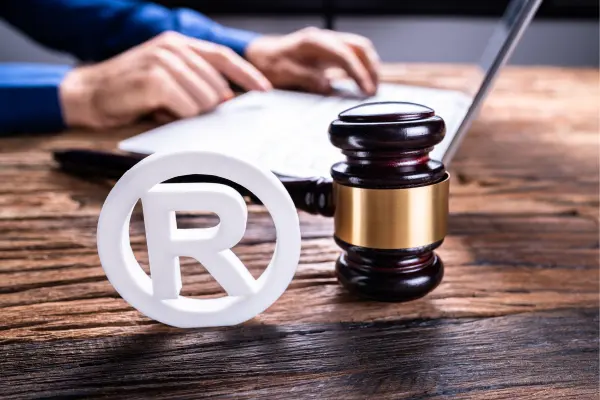The content of this article does not reflect the technical opinion of Rigoberto Paredes & Associates and should not be considered a substitute for legal advice. The information presented corresponds to the date of publication and may be outdated at the time of reading. Rigoberto Paredes & Associates is not responsible for keeping the information updated, as legal regulations may change over time.
Author: LLM. Rigoberto Paredes Ayllon
The country brand is a key tool used to project a State’s image and values on the international stage. Its role goes far beyond a mere logo or slogan—it is a distinctive sign that symbolizes national identity and becomes a strategic asset to attract investment, promote tourism, and support exports. In the Plurinational State of Bolivia, the development and legal protection of the country brand have gained particular importance within the Andean regional context, where a common regime has been established for its recognition and defense.
WHAT IS A COUNTRY BRAND AND HOW IS IT LEGALLY PROTECTED?
A country brand is an official sign adopted by a State with the purpose of promoting its image nationally and internationally. This sign may consist of words, images, symbols, slogans, or combinations thereof, and aims to highlight aspects such as culture, tourism, gastronomy, domestic production, and investment opportunities.
Unlike conventional commercial trademarks, a country brand is not intended to identify private goods or services but to represent the collective identity of a nation. Accordingly, it ensures the exclusive use of the sign by the State that created it, preventing unauthorized appropriation or misuse in other countries or by third parties.

EVOLUTION OF THE COUNTRY BRAND IN BOLIVIA
Bolivia has taken progressive steps in the creation and consolidation of its country brand. From 2010 to 2017, the country promoted the tourism slogan “Bolivia te espera” (“Bolivia Awaits You”). Later, in 2017, through a Supreme Decree, the official country brand “Bolivia Corazón del Sur” (“Bolivia, Heart of the South”) was introduced, designed to comprehensively represent national identity. This brand was the result of research and consultation with various economic and social sectors.
The Country Brand Management Committee was created to define strategic and regulatory guidelines and to drive positioning initiatives. These include national and international campaigns, activations during cultural events like the Oruro Carnival, and awareness efforts targeting the general public. Despite the progress, the initiative still requires greater continuity, especially after the sociopolitical events of 2019 and the impact of the pandemic.
COUNTRY BRAND REGISTRATION PROCESS IN THE ANDEAN COMMUNITY
Within the framework of the Andean Community, a common legal regime enables member States to protect their country brands across the region. This process aims to prevent third parties from registering identical or similar signs without authorization and strengthens the institutional defense of each State’s image.
The process begins when a member State formally notifies its country brand to the competent authorities of the other member countries. This is done using an official format. Once received, the recipient country has 15 business days to acknowledge or reject the notification if it does not meet requirements.
If no objections are raised within three months, the country brand is automatically protected from the date of receipt. Objections can only be submitted if the brand is similar to previously registered signs, includes community names without consent, or violates public order regulations.
Notably, this protection is indefinite and does not require continued use. Furthermore, a country brand is immune from seizure and not subject to expiration, underscoring its institutional nature.
PROTECTION AGAINST UNAUTHORIZED USE OF THE COUNTRY BRAND
Each member country must adopt effective measures to prevent or halt unauthorized use of a protected country brand. These measures may include initiating administrative proceedings ex officio, ordering infringing activities to stop, removing products from the market, closing establishments, and destroying or donating seized goods that are outside legal distribution channels.
The legal framework also allows for the imposition of immediate precautionary measures to prevent harm while infringement cases are being resolved. Legal action for infringement expires five years after the last unauthorized use of the sign.
In summary, the country brand serves as a powerful instrument for consolidating national identity, promoting a positive image abroad, and strengthening key economic sectors such as tourism, exports, and foreign investment. In the Bolivian context, the protection and promotion of the “Bolivia Corazón del Sur” brand is a strategic priority that, despite facing challenges, remains essential in building the country’s international positioning.
Our law firm has extensive experience in intellectual property and can assist you in the protection and enforcement of country brands or other distinctive signs related to the institutional image of the State. If you require legal advice, do not hesitate to contact us.
Our law firm has extensive experience in intellectual property and can assist you in the protection and enforcement of country brands or other distinctive signs related to the institutional image of the State. If you require legal advice, do not hesitate to contact us.
FREQUENTLY ASKED QUESTIONS (FAQs)
What is the difference between a country brand and a commercial trademark?
A country brand represents a State’s identity and is not linked to private goods, while a commercial trademark identifies the products or services of a company.
Who can register a country brand?
Only States can register a country brand through their designated competent authorities.
How long is a country brand protected?
The protection is indefinite; it does not require renewal or continuous use.
Can a company use a country brand on its products?
Yes, but only with the express authorization of the State that owns the country brand.
What happens if a company uses a country brand without permission?
The national intellectual property office may take legal actions to stop the unauthorized use, remove products from the market, and impose other sanctions.



